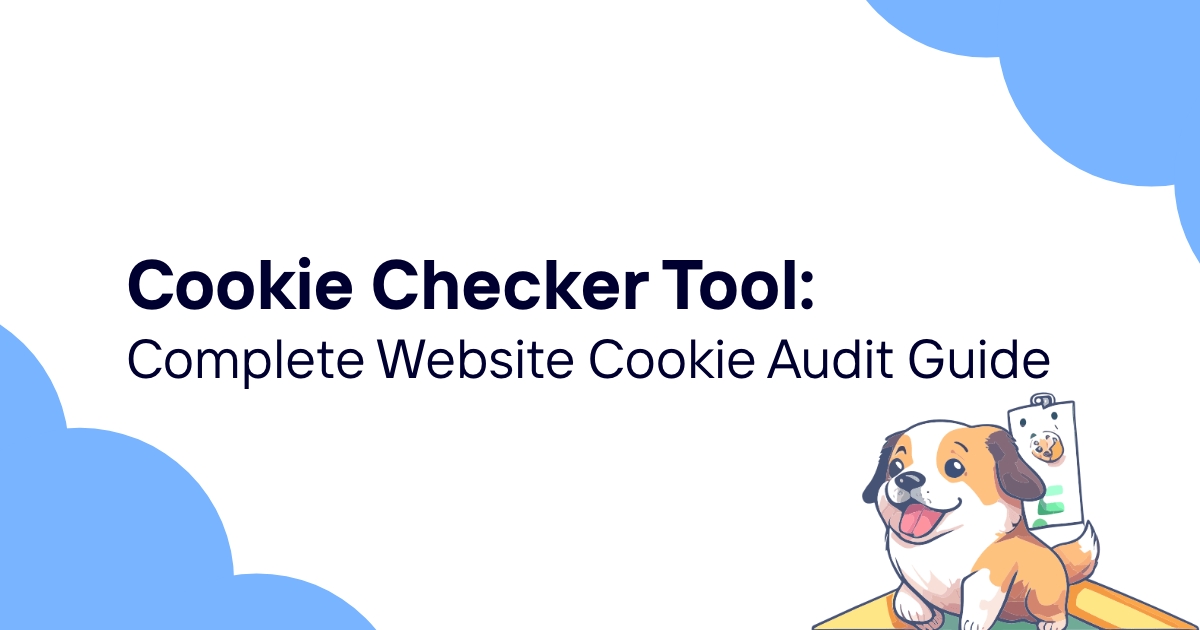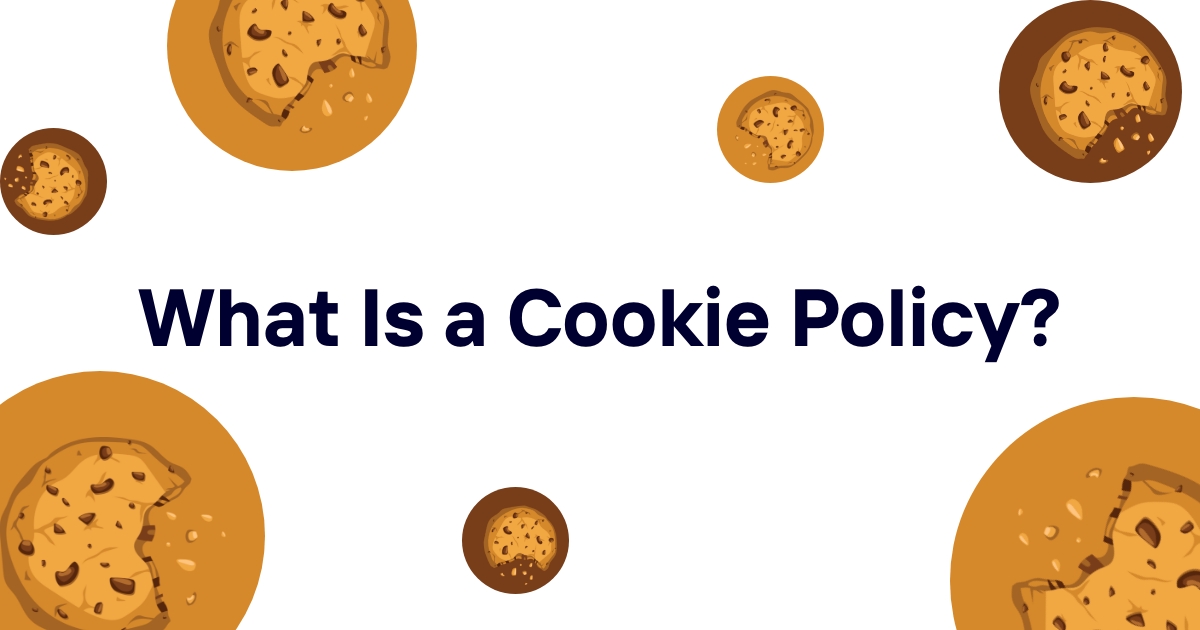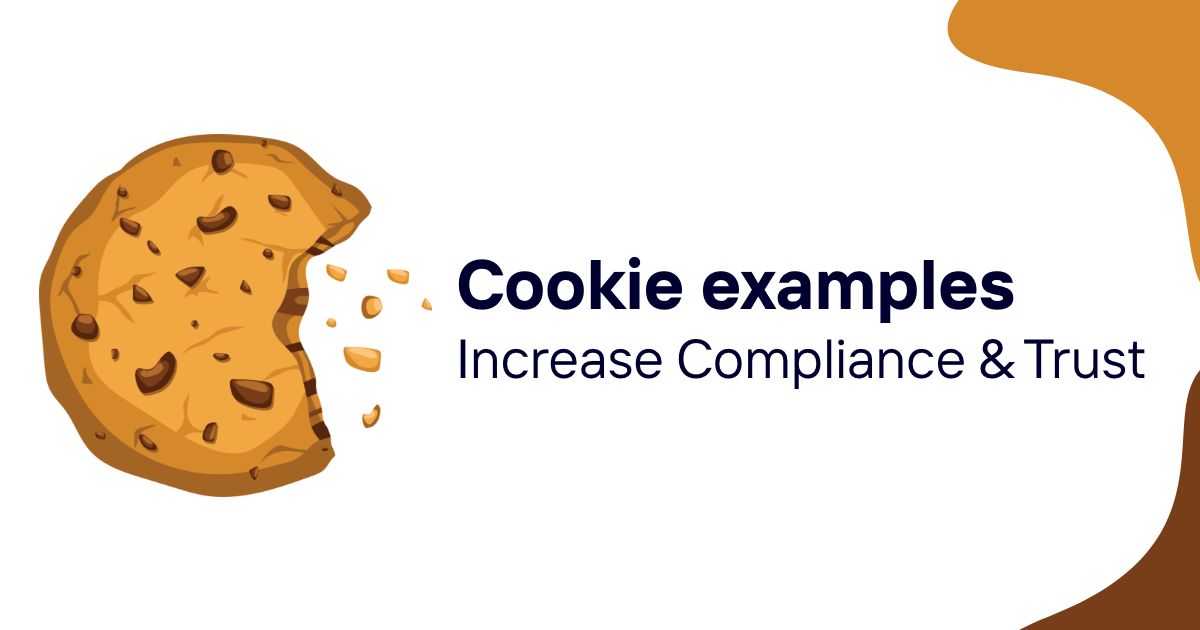Website cookies play a crucial role in modern web functionality, but they also create significant compliance obligations under privacy regulations like GDPR. Understanding what cookies your website uses and ensuring proper consent management has become essential for avoiding regulatory penalties and maintaining customer trust.
This comprehensive guide explains everything you need to know about cookie checking tools, from basic auditing processes to advanced compliance strategies. Whether you're conducting your first cookie audit or optimizing existing compliance systems, this guide provides practical steps for achieving complete cookie compliance.
Why Cookie Checking is Essential for GDPR
Cookie compliance isn't optional under GDPR – it's a legal requirement that can result in significant penalties when handled incorrectly. Understanding why cookie checking matters helps prioritize this critical compliance activity.
Legal Requirements for Cookie Compliance
GDPR and related privacy laws establish specific obligations for website cookies:
Consent Requirements: Most cookies require explicit user consent before placement, with limited exceptions for strictly necessary cookies required for basic website functionality.
Transparency Obligations: Websites must provide clear, comprehensive information about what cookies they use, why they use them, and how long they persist.
User Control: Individuals must have easy methods to withdraw consent and control cookie preferences throughout their website experience.
Documentation Requirements: Organizations must maintain detailed records of cookie consent, including when and how consent was obtained from each user.
Financial and Reputational Risks
Cookie compliance violations carry serious consequences that extend beyond regulatory penalties:
Regulatory Fines: GDPR violations can result in fines up to 4% of annual global revenue, with cookie compliance violations increasingly common in enforcement actions.
Legal Liability: Privacy lawsuits related to cookie violations are becoming more frequent and can result in significant legal costs and damages.
Customer Trust: Cookie compliance failures damage customer relationships and can lead to lost business in privacy-conscious markets.
Competitive Disadvantage: Poor cookie compliance can create competitive disadvantages as customers increasingly prefer privacy-protective businesses.
Technical Compliance Challenges
Modern websites create complex cookie environments that require systematic management:
Third-Party Scripts: Many websites use numerous third-party services that place their own cookies, creating compliance complexities that website owners may not fully understand.
Dynamic Cookie Placement: JavaScript frameworks and interactive features often create cookies dynamically, making manual tracking difficult or impossible.
Cross-Domain Tracking: Some cookies enable tracking across multiple websites, creating additional privacy concerns and compliance requirements.
Mobile and App Integration: Websites integrated with mobile apps or other digital properties may share cookies across platforms, complicating compliance efforts.
Business Benefits of Proper Cookie Management
Beyond compliance obligations, effective cookie management provides business advantages:
Enhanced User Experience: Proper cookie consent management demonstrates respect for user privacy and can improve overall website experience.
Improved Analytics Quality: Clean cookie data provides more accurate website analytics and better insights for business decision-making.
Reduced Technical Debt: Systematic cookie management helps identify unnecessary scripts and services that can be removed to improve website performance.
Marketing Optimization: Understanding cookie usage helps optimize marketing technology stacks and improve campaign effectiveness within privacy constraints.
How Cookie Checker Tools Work
Cookie checker tools use automated scanning techniques to identify, categorize, and analyze all cookies present on websites. Understanding how these tools work helps you choose appropriate solutions and interpret results accurately.
Automated Website Scanning
Modern cookie checkers use sophisticated techniques to discover all cookies on websites:
Page Crawling: Tools systematically visit website pages to identify cookies placed during normal browsing sessions, including cookies triggered by user interactions.
JavaScript Execution: Advanced scanners execute JavaScript to identify dynamically created cookies that only appear through user interactions or automated processes.
Third-Party Detection: Scanners identify cookies placed by external services, advertising networks, and analytics providers that may not be obvious to website owners.
Cross-Domain Analysis: Comprehensive tools analyze cookies that enable tracking across multiple domains or subdomains.
Cookie Classification Systems
Effective cookie checkers automatically categorize cookies based on their purpose and legal requirements:
Strictly Necessary: Cookies required for basic website functionality that typically don't require consent under most privacy laws.
Performance and Analytics: Cookies used for website analytics, performance monitoring, and optimization that usually require consent.
Functional: Cookies that enable enhanced website features and personalization that may require consent depending on specific implementation.
Marketing and Advertising: Cookies used for advertising, remarketing, and cross-site tracking that typically require explicit consent.
Unknown or Unclassified: Cookies that tools cannot automatically categorize and require manual review for proper classification.
Data Collection and Analysis
Cookie checkers gather comprehensive information about each identified cookie:
Cookie Details: Name, value, domain, path, expiration date, and security settings for each cookie.
Purpose Identification: Automated analysis to determine what each cookie does and why it exists on the website.
Legal Basis Assessment: Evaluation of whether each cookie requires consent or qualifies for exemptions under applicable privacy laws.
Risk Scoring: Assessment of privacy risks associated with different cookies based on their functionality and data collection practices.
Real-Time vs Batch Scanning
Different scanning approaches serve different compliance needs:
Real-Time Scanning: Immediate analysis of websites as they're accessed, providing current information about cookie usage and compliance status.
Batch Scanning: Scheduled scans that analyze websites at specific intervals, useful for monitoring changes and maintaining ongoing compliance.
Triggered Scanning: Scans initiated by specific events like website updates, new feature deployments, or compliance reviews.
Continuous Monitoring: Ongoing surveillance that tracks cookie changes and alerts administrators to potential compliance issues.
Step-by-Step Cookie Audit Process
Conducting comprehensive cookie audits requires systematic approaches that ensure complete coverage while maintaining accuracy and compliance with privacy requirements.
Pre-Audit Preparation
Proper preparation sets the foundation for effective cookie auditing:
Website Inventory: Create comprehensive lists of all websites, subdomains, and web properties that require cookie auditing.
Technology Documentation: Document all third-party services, plugins, and integrations that might place cookies on your websites.
User Journey Mapping: Identify all user paths through your website to ensure cookie scanning covers all possible cookie placement scenarios.
Stakeholder Notification: Inform relevant teams about upcoming cookie audits and any potential impact on website performance or functionality.
Tool Selection: Choose appropriate cookie checker tools based on your technical requirements, budget constraints, and compliance needs.
Initial Cookie Discovery
Systematic cookie discovery ensures complete visibility into your website's cookie environment:
Comprehensive Page Scanning: Use cookie checker tools to scan all website pages, including protected areas, user dashboards, and administrative interfaces.
User Interaction Simulation: Perform actions that typical users would take, including form submissions, account creation, and purchase processes.
Third-Party Service Testing: Test all integrated services including chat widgets, analytics tools, and marketing automation platforms.
Mobile and Device Testing: Check cookie behavior across different devices, browsers, and operating systems to identify platform-specific issues.
Cross-Domain Analysis: Examine how cookies behave across different domains and subdomains within your web presence.
Cookie Classification and Analysis
Systematic classification helps determine compliance requirements for each cookie:
Purpose Identification: Research what each cookie does by examining cookie names, domains, and associated services.
Legal Basis Determination: Assess whether each cookie requires consent or qualifies for exemptions under applicable privacy laws.
Data Flow Mapping: Understand how cookie data moves between systems and what information it collects about users.
Retention Period Assessment: Determine how long each cookie persists and whether retention periods align with business necessity.
Risk Evaluation: Assess privacy risks associated with each cookie based on data collection scope and sharing practices.
Documentation and Reporting
Comprehensive documentation supports ongoing compliance and regulatory requirements:
Cookie Inventory Creation: Develop detailed inventories listing all cookies with their purposes, legal bases, and compliance status.
Compliance Gap Analysis: Identify cookies that require consent but lack proper consent mechanisms.
Risk Assessment Reports: Document privacy risks and recommend remediation actions for non-compliant cookies.
Stakeholder Communication: Create clear reports for technical teams, legal counsel, and business leadership about audit findings.
Action Item Prioritization: Develop prioritized lists of compliance improvements based on legal requirements and business impact.
Understanding Cookie Types and Categories
Different types of cookies serve various purposes and carry different compliance obligations under privacy laws. Understanding these distinctions helps implement appropriate consent mechanisms and privacy protections.
Strictly Necessary Cookies
These cookies are essential for basic website functionality and typically don't require consent:
Session Management: Cookies that maintain user login status and shopping cart contents during website visits.
Security Functions: Cookies used for fraud prevention, secure authentication, and protection against security threats.
Load Balancing: Technical cookies that distribute website traffic across servers to ensure proper performance.
Basic Preferences: Cookies that remember essential user choices like language selection or accessibility settings.
Legal Basis: These cookies usually qualify for the "strictly necessary" exemption under most privacy laws, though proper documentation is still required.
Performance and Analytics Cookies
Cookies used for website optimization and analytics typically require consent:
Website Analytics: Cookies that track page views, user behavior, and website performance metrics for optimization purposes.
A/B Testing: Cookies that enable testing different website versions to improve user experience and conversion rates.
Error Tracking: Cookies that help identify and resolve technical issues affecting website functionality.
Performance Monitoring: Cookies that measure website speed, availability, and user satisfaction metrics.
Consent Requirements: Most jurisdictions require explicit consent for analytics cookies, though some allow exemptions for privacy-friendly analytics configurations.
Functional Cookies
These cookies enhance website functionality beyond basic requirements:
Personalization: Cookies that remember user preferences for customized website experiences.
Social Media Integration: Cookies that enable social media features like sharing buttons and embedded content.
Live Chat: Cookies that support customer service chat functionality and conversation history.
Enhanced Features: Cookies that enable advanced website features like interactive maps or multimedia content.
Compliance Considerations: Functional cookies often require consent, though some basic personalization features may qualify for exemptions.
Marketing and Advertising Cookies
These cookies support advertising and marketing activities and typically require explicit consent:
Behavioral Targeting: Cookies that track user behavior to deliver personalized advertising based on interests and activities.
Cross-Site Tracking: Cookies that enable tracking users across multiple websites for advertising purposes.
Remarketing: Cookies that identify previous website visitors for targeted advertising on other platforms.
Conversion Tracking: Cookies that measure advertising effectiveness and return on marketing investments.
Affiliate Tracking: Cookies that track referrals and commissions for affiliate marketing programs.
Consent Requirements: Marketing cookies almost always require explicit, informed consent under privacy laws like GDPR.
Third-Party vs First-Party Cookies
The source of cookies affects privacy implications and compliance requirements:
First-Party Cookies: Set directly by your website domain and generally considered less privacy-invasive.
Third-Party Cookies: Set by external domains through embedded scripts, widgets, or advertising networks.
Privacy Implications: Third-party cookies often enable cross-site tracking and raise greater privacy concerns.
Compliance Complexity: Third-party cookies may be subject to additional restrictions and consent requirements.
As detailed in our DPA meaning guide, when third-party services place cookies on your website, you may need data processing agreements to ensure GDPR compliance.
Cookie Compliance Requirements by Region
Privacy laws vary significantly across jurisdictions, creating different compliance requirements for website cookies. Understanding regional differences helps ensure appropriate compliance measures.
European Union (GDPR and ePrivacy)
The EU maintains some of the strictest cookie compliance requirements globally:
Consent Requirements: Most cookies require explicit, informed consent before placement, with limited exceptions for strictly necessary cookies.
Consent Quality Standards: Consent must be freely given, specific, informed, and unambiguous, with easy withdrawal mechanisms.
Pre-Consent Restrictions: Cookies cannot be placed before obtaining proper consent, except for strictly necessary cookies.
Consent Management: Organizations must provide granular control over different cookie categories and easy consent withdrawal.
Documentation Obligations: Detailed records of consent must be maintained, including when, how, and for what purposes consent was obtained.
Enforcement Trends: European authorities actively enforce cookie compliance with significant fines for violations.
United States (State-Level Variations)
US cookie compliance varies significantly by state, with increasing complexity:
California (CCPA/CPRA): Requires disclosure of cookie usage and provides opt-out rights for cookie-based data sales.
Virginia (VCDPA): Implements consent requirements for certain cookies and provides consumer control rights.
Connecticut (CTDPA): Similar to Virginia with consent and control requirements for specific cookie types.
Federal Considerations: No comprehensive federal cookie law, but FTC enforcement actions affect cookie practices.
Sector-Specific Rules: Healthcare, financial services, and children's privacy laws create additional cookie requirements.
Other International Requirements
Cookie laws continue expanding globally with varying approaches:
United Kingdom: Post-Brexit implementation maintains GDPR-like requirements with some modifications.
Canada (PIPEDA): Requires consent for cookies that collect personal information with some exceptions.
Brazil (LGPD): Similar consent requirements to GDPR with adaptations for Brazilian legal framework.
Australia: Privacy Act amendments may introduce new cookie compliance requirements.
Asia-Pacific: Various countries implementing privacy laws that affect cookie compliance.
Regional Compliance Strategies
Managing multi-jurisdictional compliance requires strategic approaches:
Highest Standard Approach: Implementing the strictest requirements globally to ensure compliance across all jurisdictions.
Geographic Segmentation: Different compliance approaches for different regions based on local requirements.
User Location Detection: Technology that adapts cookie compliance based on detected user location.
Legal Basis Optimization: Choosing appropriate legal bases for cookie processing in different jurisdictions.
Interpreting Cookie Audit Results
Understanding cookie audit results requires knowledge of compliance indicators, risk factors, and remediation priorities. Proper interpretation helps focus improvement efforts on the most critical compliance gaps.
Compliance Status Indicators
Cookie audit reports typically include various indicators of compliance status:
Compliant Cookies: Cookies that have proper consent mechanisms, clear purposes, and appropriate legal bases.
Non-Compliant Cookies: Cookies that lack required consent, have unclear purposes, or violate privacy requirements.
Unknown Status: Cookies that require manual review to determine compliance status and appropriate remediation.
High-Risk Cookies: Cookies that pose significant privacy risks or regulatory exposure requiring immediate attention.
Technical Issues: Cookies with implementation problems that affect compliance or functionality.
Risk Assessment Metrics
Audit tools often provide risk scoring to help prioritize remediation efforts:
Privacy Risk Level: Assessment of potential privacy impact based on data collection scope and sensitivity.
Regulatory Risk: Evaluation of potential enforcement exposure based on jurisdiction and violation type.
Business Impact: Assessment of how compliance changes might affect website functionality and user experience.
Implementation Complexity: Evaluation of technical difficulty and resource requirements for compliance improvements.
Common Audit Findings
Typical cookie audit results reveal predictable patterns of compliance issues:
Missing Consent Mechanisms: Cookies placed without proper consent collection from users.
Unclear Cookie Purposes: Cookies with vague or missing descriptions of their intended functionality.
Excessive Data Collection: Cookies that collect more personal data than necessary for their stated purposes.
Inappropriate Retention Periods: Cookies that persist longer than necessary for their intended purposes.
Third-Party Cookie Issues: External services placing cookies without proper consent or documentation.
Remediation Priority Framework
Effective cookie compliance improvement requires systematic prioritization:
Legal Requirement Priority: Address cookies that violate explicit legal requirements first.
High-Risk Cookie Focus: Prioritize cookies with significant privacy risks or regulatory exposure.
Business Impact Consideration: Balance compliance requirements with business functionality needs.
Implementation Feasibility: Consider technical complexity and resource requirements when planning remediation.
User Experience Impact: Ensure compliance improvements don't unnecessarily degrade user experience.
As outlined in our GDPR compliance software guide, comprehensive compliance platforms can automate much of the cookie audit and remediation process.
Fixing Cookie Compliance Issues
Addressing cookie compliance gaps requires systematic approaches that balance legal requirements with business functionality and user experience considerations.
Implementing Proper Consent Mechanisms
Effective consent management forms the foundation of cookie compliance:
Consent Banner Design: Create clear, prominent consent banners that explain cookie usage and provide meaningful choice.
Granular Consent Options: Provide separate consent options for different cookie categories rather than all-or-nothing approaches.
Easy Consent Withdrawal: Implement accessible methods for users to withdraw consent and modify preferences.
Consent Record Keeping: Maintain detailed records of user consent decisions for compliance verification.
Cross-Device Consistency: Ensure consent preferences work consistently across different devices and browsers.
Cookie Policy Development
Comprehensive cookie policies provide required transparency and user information:
Complete Cookie Inventory: List all cookies used on your website with clear descriptions of their purposes.
Purpose Explanations: Provide clear, non-technical explanations of why each cookie is used and how it benefits users.
Legal Basis Documentation: Explain the legal basis for each cookie and why consent is or isn't required.
Retention Period Information: Specify how long each cookie persists and why that duration is necessary.
Contact Information: Provide clear contact details for users who have questions about cookie usage.
Technical Implementation Strategies
Proper technical implementation ensures consent preferences are respected:
Consent-Conditional Loading: Implement technical controls that prevent non-essential cookies from loading until consent is obtained.
Script Management: Use tag management systems to control when and how third-party scripts load cookies.
Cookie Categorization: Technically separate different cookie types to enable granular consent management.
Preference Persistence: Ensure user consent preferences persist across browser sessions and website visits.
Regular Validation: Implement monitoring to ensure consent mechanisms continue working correctly over time.
Third-Party Service Management
Managing external services requires ongoing attention and proper contractual arrangements:
Vendor Assessment: Evaluate all third-party services for their cookie compliance and privacy practices.
Service Configuration: Configure third-party services to respect user consent preferences when possible.
Alternative Solutions: Consider privacy-friendly alternatives for services that don't support proper consent management.
Contract Updates: Update vendor contracts to include cookie compliance requirements and responsibilities.
Regular Reviews: Periodically review third-party services to ensure ongoing compliance and necessity.
Documentation and Governance
Systematic documentation supports ongoing compliance and regulatory requirements:
Compliance Procedures: Document step-by-step procedures for maintaining cookie compliance as websites evolve.
Change Management: Implement processes for reviewing cookie implications of new features or services.
Training Programs: Educate relevant staff about cookie compliance requirements and implementation procedures.
Regular Auditing: Establish schedules for ongoing cookie audits and compliance verification.
Incident Response: Develop procedures for addressing cookie compliance violations or user complaints.
Ongoing Cookie Monitoring Best Practices
Cookie compliance isn't a one-time project – it requires continuous monitoring and maintenance as websites evolve and new privacy requirements emerge.
Automated Monitoring Systems
Systematic monitoring helps identify compliance issues before they become serious problems:
Regular Scanning Schedules: Implement automated cookie scans on weekly or monthly schedules to detect changes.
Change Detection Alerts: Set up notifications when new cookies appear or existing cookies change their behavior.
Compliance Dashboard Monitoring: Use centralized dashboards to track cookie compliance status across all web properties.
Performance Impact Tracking: Monitor how cookie compliance measures affect website performance and user experience.
User Consent Analytics: Track consent rates and user preferences to optimize consent management approaches.
Website Update Protocols
New website features and updates can introduce compliance risks that require systematic management:
Pre-Deployment Testing: Test all website updates for cookie implications before releasing to production.
Cookie Impact Assessments: Evaluate how new features might affect cookie usage and compliance requirements.
Vendor Change Management: Review cookie implications when adding, removing, or updating third-party services.
Compliance Integration: Include cookie compliance checks in standard website development and deployment processes.
Documentation Updates: Keep cookie policies and consent mechanisms current with website changes.
Regulatory Change Tracking
Privacy laws evolve continuously, requiring ongoing attention to compliance requirements:
Legal Update Monitoring: Track changes in privacy laws that might affect cookie compliance requirements.
Enforcement Trend Analysis: Monitor regulatory enforcement actions to understand compliance priorities and risks.
Industry Best Practice Research: Stay current with evolving industry standards and recommended practices.
Compliance Program Updates: Regularly update cookie compliance programs based on legal and industry developments.
Performance Optimization
Effective cookie management balances compliance with website performance and user experience:
Consent Flow Optimization: Continuously improve consent user interfaces based on user behavior and feedback.
Technical Performance Monitoring: Track how cookie compliance measures affect website loading speed and functionality.
User Experience Testing: Regularly test cookie consent flows to ensure they don't unnecessarily burden users.
Business Impact Assessment: Monitor how cookie compliance affects key business metrics like conversion rates and user engagement.
Compliance Documentation Maintenance
Comprehensive documentation supports ongoing compliance and regulatory requirements:
Cookie Inventory Updates: Maintain current inventories of all cookies with their purposes and compliance status.
Consent Record Management: Ensure consent records remain accessible and properly organized for compliance verification.
Audit History Tracking: Maintain records of all cookie audits and compliance improvements over time.
Training Record Keeping: Document staff training on cookie compliance to demonstrate organizational commitment.
Building effective cookie compliance requires combining technical implementation with ongoing governance and monitoring. The most successful approaches treat cookie compliance as an integral part of website management rather than a separate compliance activity.
For businesses looking to streamline cookie compliance while maintaining comprehensive protection, integrated solutions offer significant advantages over managing cookie compliance through separate tools and manual processes.
Ready to implement comprehensive cookie compliance that scales with your website growth? Use ComplyDog and get automated cookie consent management, integrated compliance monitoring, and complete privacy documentation that keeps your website compliant as it evolves.


















